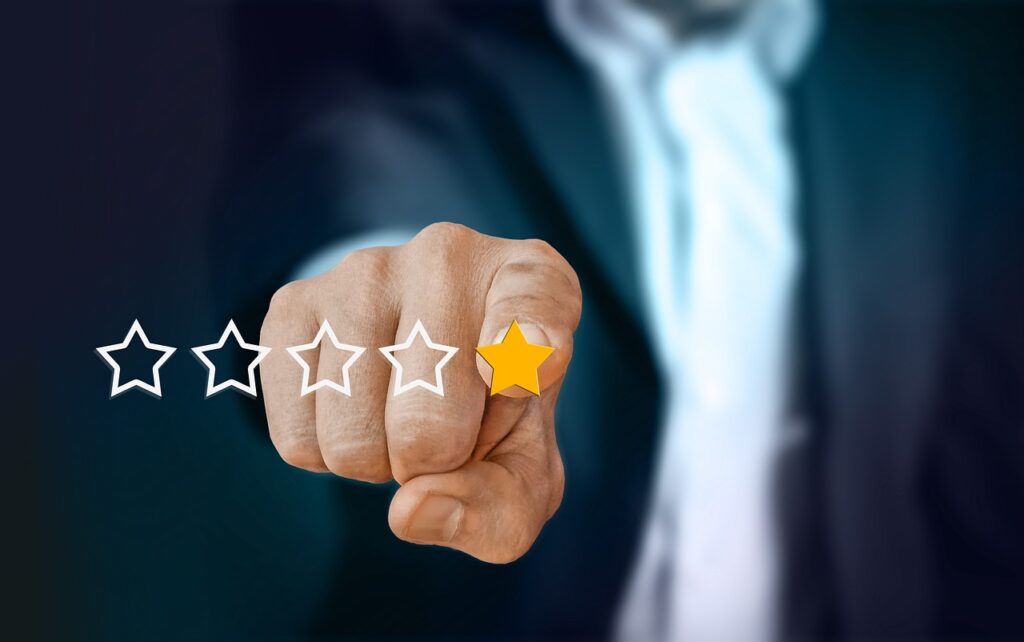Truth and transparency are all the rage today, reshaping marketing as people crave virtue before profits. This reveals major potential for marketers with moral courage. As consumers increasingly support value-aligned brands, huge opportunity awaits positioning marketing as a force for good. This evolving concept of business ethics presents an exciting way forward by embracing practices showcasing ethical values to foster connections.
The data backs it, too- brands which aquire the concept of business ethics and a purpose, achieve real payoffs! By putting ethical standards and people first (not finances), marketing can become truly relevant to modern life. This guide shows how to instil principles across marketing. By winning hearts, minds and wallets through ethical practice, renewal awaits.
Brand devotion is now attained by matching words with impeccable action. So, the ethical wave offers open waters for everyone – if we have the wisdom to sail them right. Marketing that makes the world better thrives better with truth and transparency as the ultimate competitive edge today.
The Pull of Purpose
- Studies show that consumers are 4-6 times More Likely To Purchase, Protect And Champion Purpose-Driven Companies.
- Amid growing calls for corporate accountability, concepts like sustainability and fair labour carry definite market advantages. Ethics clearly now drives preference and sales.
- Surveys indicate over 56% of American shoppers have boycotted companies in the past year due to perceived unethical practices – proving ethics lapses carry a financial downside. The incentive to operate morally keeps growing.
The Power of Principles
- Brands perceived as unethical face sharp drops in customer retention and revenue – plus issues attracting talent. In contrast, leaders on ethical business indexes enjoy strengthened employer brands.
- Mission-led companies guided by ethical codes on matters like data privacy, HR practices, and environmental policies are statistically more productive places to work. Ethics drives internal gains as much as external success.
- Studies by Harvard Business Review and others tie ethical practices to stronger critical thinking in teams, better judgement calls under pressure, and improved conflict navigation – skills that directly boost outputs. Ethics enables organisational excellence.
The Promise of Transparency
- In an era of radical corporate transparency, ethical businesses have an in-built advantage. Ethical practices withstand scrutiny, while questionable activities risk exposé and backlash.
- Proactively communicating ethics policies and demonstrating accountability around issues like supply chain ethics allows brands to control narratives on their integrity. Saying and showing you are principled begets trust.
- Tools like ethical audits, ethics hotlines for whistleblowers, and publishing ethics-related KPIs signal commitment to self-examination and continual improvement in practising what you preach. Sweeping problems under rugs backfire today.

Standing Up for Values
- Taking public stands on social issues and political matters risks alienating some yet builds fierce loyalty among those who agree. Where values align, support solidifies.
- Backing up stated beliefs on complex topics with policy and practice dollars – like The Body Shop does on environmental activism – makes purpose messaging believable. Ethics-rooted brands gather communities around shared hopes.
Modelling Ideas
Companies guided by moral compasses serve as examples that shift cultures over time – like how Patagonia’s environmental defence strengthens the conscious consumerism tide. Movements need vanguards.
Workforce policies elevating humanity, like employee activism protections or rejecting mandatory arbitration, signal priorities focused on ethical consequences over control, influence, or convenience. People follow people at their best.
Growth Through Goodness
Doing right by people and the planet inevitably means short-term sacrifices. But visionary leaders understand greener, more ethical pastures lie ahead by adhering to marketing ethics around transparency, privacy, and societal impacts.
Lasting positive change on societal issues like sustainability starts with individuals and organisations willing to live out their stated values first. The shifting landscape rewards the integrity of those who demonstrate strong marketing ethics in their practices.
The Rise of Conscious Consumerism
- Fact: 81% of millennials consider corporate ethics before buying and want a company to make public commitments to charitable causes and global citizenship. The concept of business ethics is now a primary driver of choice and loyalty.
- Showing real integrity and purpose matters more than clever tricks and empty messaging. From “woke washing” to flat-out deception, shallow attempts at virtue signalling fall flat fast.
- Consumers newly empowered by technology and transparency can see through most hollow marketing ploys and call them out loudly. The incentive to operate honourably thus grows by the day.
Influencer Marketing Requires Added Scrutiny
Influencer commerce now moves billions yearly in India. But fake followers and undisclosed sponsorships have consumers questioning trust. This ethical gap indicates a lack of transparency – a key tenet of business ethics now expected by people.
By demanding higher standards around follower authenticity, truthful reviews and sponsorship disclosure, the industry can rehabilitate its reputation. Responsible influencer marketing that puts audience needs first while enabling creativity can still thrive.

However, confronting ethical issues through integrity and transparency is vital to align with modern business ethics. It nurtures consumer trust. Influencer marketing must champion the ethical standards now sought by followers – through a commitment to disclosure, authenticity and putting people first. This promises a more credible path ahead.
The Hazards of Targeting and Data Abuse
Customer data enables helpful personalization but risks manipulation if mishandled – sparking ethics questions. Just see Cambridge Analytica’s trust-destroying data misuse. Today, public attitudes harden against intrusive targeting.
While data holds the power to connect genuinely, its use requires ethical principles. Marketers must lead with restraint and wisdom as societal debates evolve on appropriate data use.
Sophisticated practices, like the emotional targeting of vulnerable groups, now draw intense scrutiny through an ethical lens. Marketers must champion transparent policies guided by business ethics concepts that respect consumer consent and interests. This promises greater trust and sustainability than short-term gains from deceptive data tactics.
Sustainability as Imperative
- Eco-conscious Gen-Z buyers now account for $143 billion in spending power, demanding brands walk the walk on sustainability and other values.
- From supply chains to packaging, marketing carries obligations around environmental ethics that become more pressing by the day. Leadership in renewable materials, carbon emissions cuts, and conservation initiatives now sway wallets.
- Pulling from the concept of business ethics, marketing everywhere must reconcile with sustainability needs and use its reach to promote planet-friendly choices at every opportunity.
The Rewards of Rising Above
- Achieving full transparency around company practices, supply chains, and social impacts is now the baseline. But going further to address the root causes of problems opens doors to credibility and devotion few other marketing investments can compete with.
- Brands guided by the concept of business ethics that can truthfully claim industry-leading standards, genuine advocates for causes, and robust ethical codes will attract and retain community goodwill plus customer loyalty on new levels.
- Ethical marketing guided by moral and societal purpose wins attention, and relationships automated systems can rarely pretend to. The trust and connection of consciously putting people first compounds over time into quantifiable business advantage.

Fundamental Concepts of Business Ethics
The Growing Call for Responsibility
- Over 88% of consumers now believe companies must address moral issues and societal problems in their work. Ethics anchors preference and trust today.
- People expect businesses not to chase profits merely but to contribute value by addressing challenges like sustainability, data privacy, and algorithmic bias. Marketing plays a central role.
- Ethical pitfalls risk severe backlash in the social media era, where exposure travels widely. But leadership on issues similarly earns robust goodwill and relationships. The entire concept of business ethics now make or break brands.
Owning Influence with Integrity
- Marketing’s core purpose involves influencing attitudes and behaviours. Done ethically, This enables social goods like reducing smoking or increasing recycling.
- But the same tools pose risks around overreach and manipulation when misused – hence increasing regulations around areas like youth marketing and transparency needs. Legal changes lag behind ethical dilemmas.
- Responsible influencer marketing builds connections through the authentic sharing of useful information or entertainment. Deceptive astroturfing or snake oil salesmanship clearly crosses ethical lines instead.
Respecting People and Truth
- At its heart, ethical marketing must honour consumer consent, needs, and intelligence. Dark patterns that trick people or celebrations of ignorance violate basic respect.
- Truth in advertising remains foundational but needs expanding to address modern techniques like emotionally exploitative messaging built on psychological secrets uncovered through surveillance data.
- Ethical issues in marketing are multifaceted. But putting people over profits, informing rather than coercing choices, and honesty remaining across all media must anchor the work.
Owning the Future
- Innovation ushers new questions on ethics with each advance, as seen today around voice analytics, facial tracking, VR environments, and more. Marketers must proactively address them.
- Creating cultures focused on examining consequences, led by empowered ethics officers checking potential harms, helps teams build the future responsibly. The concept of business ethics cannot remain an afterthought.
- Responsible innovation frameworks ensuring technologies align with human values boost creativity through constraints – guidance lacking in move fast, break things models. Ethics enables truer progress.
The Path Ahead
With great influence comes great responsibility. Marketing today requires engaging that reality. Through examining our impacts, upholding rigorous standards, and focusing first on how we can serve people rather than profit from them, the industry can realise its highest purpose – and rewards will follow.
This applies equally to digital marketing agencies, traditional advertisers and influencer marketing agencies in India alike. By coming together as an ecosystem to establish and enforce ethical codes of conduct, increase transparency, and put consumer protection at the centre, we can build trust while advancing our craft.
If we each commit to understanding the societal ripple effects of our work, proactively self-regulate, and course-correct when needed, marketing’s future looks bright. Purpose-driven businesses guided by ethical frameworks represent the cutting edge – where influencer marketing agencies in India help shape culture for good.
Lead the Change
With conscious consumerism now entering its prime era, marketing divorced from ethics faces extinction. While risky for late embracers, those who champion transparency, accountability, and consideration have everything to gain in both impact and profits.

Executives are able to install the concept of business ethics within their companies through culture, conduct policies, and review mechanisms, positioning themselves to tap into the zeitgeist of the times and its manifold commercial fruits.
In a Nutshell
The ethical marketing tide is rising, folks – people now actively favour brands that walk the talk on critical issues like sustainability, privacy and transparency. Beyond sales, there’s a social duty here. Companies that address ethical concerns head-on, stand by their values (not just chase profits), and focus on benefiting consumers, build sturdy loyalty and reputation over time.
Strong concept of business ethics confer a solid competitive edge today. Brands that ignore conscience risk fading relevance. As word spreads on who’s driving real-world change versus virtue signalling, purchasing patterns speak volumes.
So let enduring principles (beyond finances) guide your path ahead. Watch how customers embrace your brand as one worth investing in when purpose rings loud. Lean into your authentic conscience across all marketing – this builds sustainable influence now. Champion the change you wish to see.
With the concept of business ethics and responsibility emerging as marketing’s new currency, the data and dollars now trail conscience – loud and clear. This is the surer path to preference and leadership. The ethical wave lifts all boats – if steered true. It’s time to let conscience and care speak first in all you create and share.
Frequently Asked Questions
What are some consequences brands face for perceived unethical practices?
Brands perceived as unethical face sharp drops in customer retention and revenue, issues attracting top talent, and shoppers boycotting companies in the past year due to ethics concerns.
How can transparent communication around ethics policies benefit brands?
Proactively communicating ethics policies and demonstrating accountability allows brands to control narratives on their integrity and builds consumer trust through transparency.
How can taking public stands on issues benefit purpose-driven brands?
Taking a stand on social issues risks alienating some but builds fierce loyalty among those who agree. Where values align, support solidifies into devoted brand communities.
What percentage of shoppers now consider corporate ethics before buying?
81% of shoppers now consider corporate ethics before buying, with conscious consumerism becoming a primary driver of choice and loyalty.
What role should marketing agencies take regarding ethical issues in influencer marketing?
Marketing agencies should help establish and enforce ethical codes of conduct, increase transparency, and put consumer protection at the centre to rehabilitate trust in influencer marketing.


